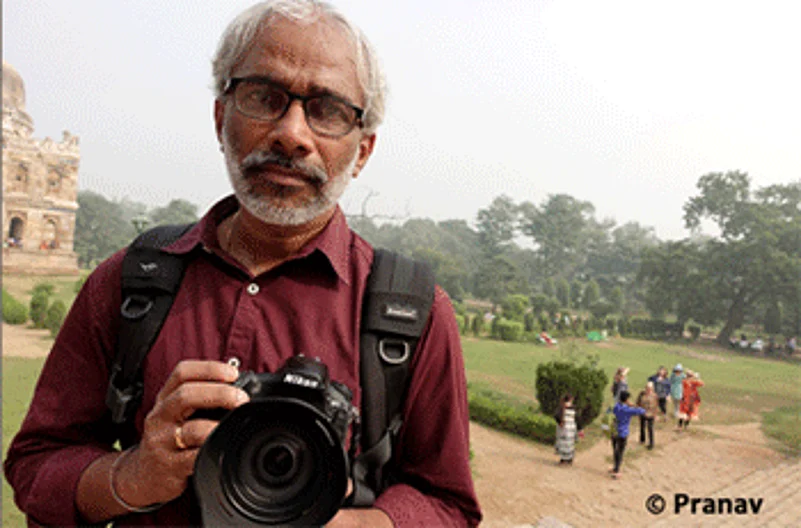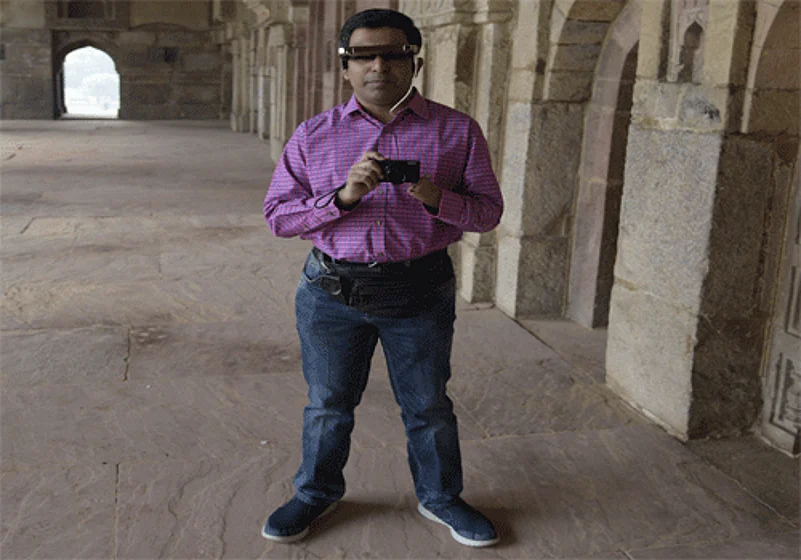Writing for a personal finance magazine entails that I focus on issues related to people's money when writing; it may not be the crux of the copy but it is singlehandedly one of the most crucial elements to swear by. When I met Neha Arora, the founder of Planet Abled, I met her in the capacity of her being a 33-year old entrepreneur who started her company with the intention of providing travel services for travellers, including people with disabilities. Getting on from that point, while her investment idea is undoubtedly relevant, suddenly, I found myself questioning why some of us who have the money, are not accorded equal accessibility when we talk of public property. Each journey is unique in its own right, Planet Abled also creates a space where the disabled and the non-disabled people can travel together or solo, like everyone else instead of tagging along with their own families or going on that one-off trip with the people with similar disabilities.
As a child, Arora mentioned that she barely ever travelled as both her parents are disabled—her father is blind and her mother is a wheelchair user—despite successful careers and money to pay for trips like any other parents. It struck me, how important travelling has come to be for most of us with the tourism industry growing all over the world. Travelling is no longer about affording luxury to most of us, it has become a need-based activity that we indulge in with our choice.
Arora was all smiles when I mentioned that I would like to meet some of her clients to get to know more about everything they do. She spoke of them fondly, like friends who have known each other for all their lives. Imagine building a family this way, aligning dreams of others with yours to create a space where you can exercise the luxury of ‘choice’. The choice to make space for new friends, and where your disabilities are not viewed as barriers.
It struck a personal chord with me because unlike most people of my age who love to travel, I do not enjoy travelling at all. I don't enjoy the process of it, I do not feel the rush of how wonderful long train journeys can feel or how enriching bus rides can be. In fact, I can be found dozing off each time I am on a plane. Having said this, I cannot deny how delighted I am once I have reached my destination. Each little town or city I have visited has taught me something new. I believe the process may be different for everybody, but there are many like me.
To narrow it down, Planet Abled is the first of its kind travel platform that is open to everyone, including people with disabilities. Arora made it amply clear early on in our interaction that Planet Abled follows the model of 'universal design' when it comes to inclusive travel. The concept of universal design is based on creating an environment that is meant to make accessibility a core element to allow people with disabilities, the freedom when travelling. ''My clients are achievers in their respective fields and earn their living like everybody else. So if they wish to travel, it must be made accessible to them and nothing should deter them from the joy one derives from travelling,'' she said.
On one of their earliest trips nearly two years ago, Arora took small groups of people to historical sites within Delhi, today it has grown to people venturing out in customised solo out of station trips as well. I chanced upon a meeting with Rahul Rawal, one of Planet Abled's oldest clients. Rawal, 34, is an operations manager with AON and is a wheelchair user. When asked what travelling meant to him, he stated, ''I never thought travelling without my family would be possible for me but Neha made it happen. I went on a solo trip to Rishikesh last year and now wish to visit Goa next.''
One of her greatest memories of a family trip, Arora recalls, was to a religious site, nearly a decade ago. On reaching the temple premises, Arora realised that it was inaccessible for people with disabilities, her father who is blind had to help her mother up to the temple as it would be impossible for her mother to pay a visit on the wheelchair. Needless to say, this is one of the many instances that inspired Arora to quit her flourishing career in the corporate sector to venture out and create Planet Abled.
Growing up, I remember one of my aunts who suffered from a condition which caused her to lose her hearing over a period of time. Over the years, she became deaf. But, I also remember that in our home, our attitude towards her never shifted. She was quick to adapt despite challenges she faced, and it helped that the family treated it like any other condition one may suffer from. She continues to be one of the most confident human beings I know. Arora also talks about the similar challenges that most of her clients have encountered with commonly held 'us versus them' attitude and how much it adds to the existing issues. Sometimes it can come from within the family unit itself, ''it is absolutely crucial that people with disabilities are treated as equals and it makes a world of difference in both young minds and old,'' she says.
Meeting Pranav Lal, the 38-year old blind photographer, who has been a part of the Planet Abled journey since its inception provided me an insight into how a creative process recognises no barriers and deterrents when it comes to being unleashed. Lal who is blind since birth has taken to photography and likes to express himself visually and considers ''photography a vehicle of self expression.'' With Planet Abled, he is a prominent figure when various get-togethers or workshops are hosted.

Shot captured by Pranav Lal with (Gireesh's camera) the help of a Vision Device attached to his specs

Pranav Lal clicking pictures of Outlook Money photographer, Gireesh GV (as pictured above)
Given our strict and limited physical and subconscious structures, the idea to be seen while seeing is almost enlightening. Even a fraction of this process is an achievement and means a great deal of progress in the longer run. ''With assisted and accessible travel for people with disabilities, we are headed in a direction towards inclusion in the long term. It is not just important to see but also to be seen,'' Arora explains.
I would like to conclude with opening lines from Auguries of Innocence, ''..to see a world in a grain of sand and a heaven in a wild flower, hold infinity in the palm of my hand and eternity in an hour..''































